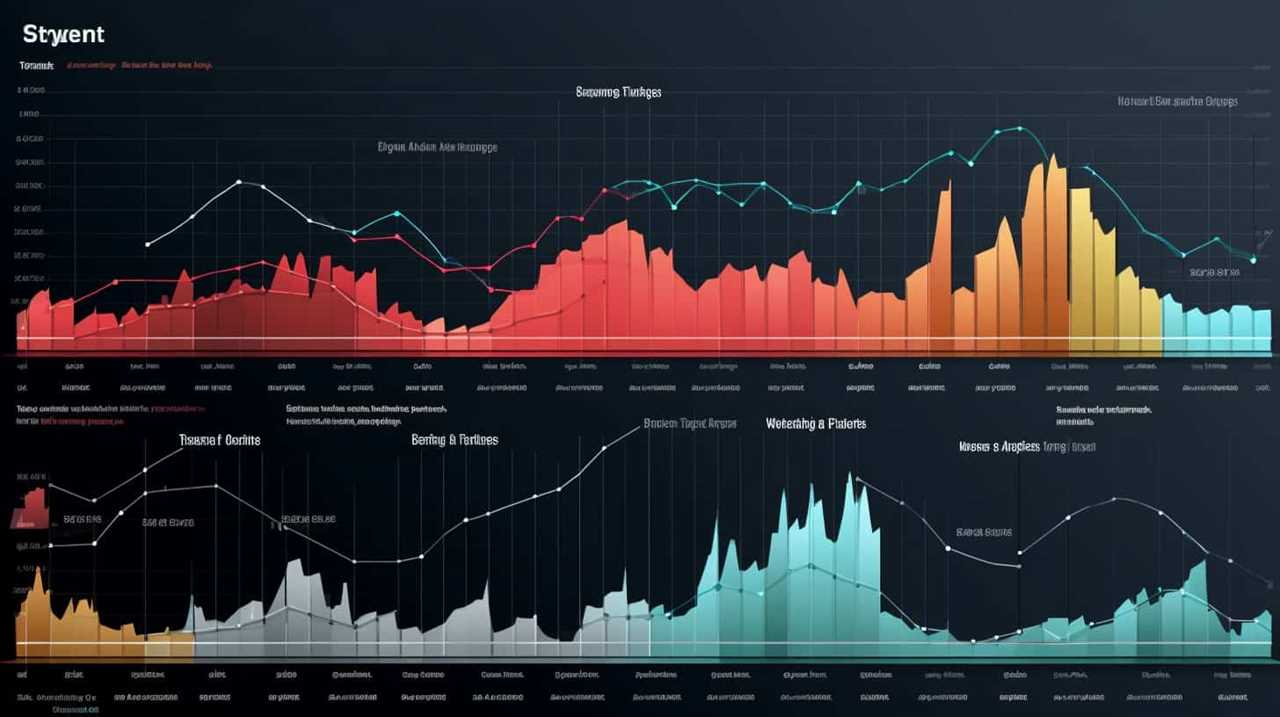Feeling swamped by the complexities of technical SEO? We understand how frustrating it can feel. But fear not, because we have the solution you need to tackle your issues.
In this article, we will delve into the world of technical SEO and show you how it can elevate your website’s performance to new heights.
From the importance of technical SEO to the key elements and best practices, we’ve got you covered.
Prepare to master the art of technical SEO and boost your online presence like never before.

Key Takeaways
- Technical SEO focuses on improving the technical elements of a website for better visibility and ranking in search engine results pages (SERPs).
- Technical SEO ensures that a website is accessible, crawlable, and indexable by search engines.
- Optimizing technical aspects like site speed and mobile-friendliness enhances user experience and increases conversions.
- Conducting a technical SEO audit is the first step in identifying areas for improvement and following technical SEO best practices enhances website visibility, user experience, and search engine rankings.
Understanding Technical SEO
- We’ll explain the basics of technical SEO. Technical SEO is a critical aspect of optimizing a website for search engines. It focuses on improving the technical elements of a website to enhance its visibility and ranking in search engine results pages (SERPs).
Many website owners make common technical SEO mistakes, such as neglecting to optimize their site’s speed, failing to implement proper URL structure, or overlooking the importance of mobile optimization.
Technical SEO differs from on-page SEO, which primarily deals with optimizing the content and structure of individual web pages. While on-page SEO focuses on factors like keyword optimization and content quality, technical SEO ensures that a website is accessible, crawlable, and indexable by search engines.
Understanding the difference between these two aspects is crucial for achieving optimal search engine performance.
In the next section, we’ll discuss the importance of technical SEO in more detail.

Importance of Technical SEO
Let’s delve into the significance of technical SEO. Technical SEO techniques play a crucial role in improving website performance and search engine rankings. By optimizing the technical aspects of a website, such as its structure, speed, and mobile-friendliness, businesses can ensure that their website is easily accessible and user-friendly. This, in turn, leads to improved user experience, higher engagement, and increased conversions. To highlight the benefits of technical SEO for website performance, let’s take a look at the following table:
| Technical SEO Techniques | Benefits for Website Performance |
|---|---|
| Optimizing site speed | Faster loading times |
| Implementing structured data | Enhanced search engine visibility |
| Mobile optimization | Improved mobile experience |
| Fixing crawl errors | Enhanced website indexation |
Key Elements of Technical SEO
Now we’ll explore the key elements of technical SEO and how they contribute to optimizing website performance and search engine rankings.
Technical SEO tools play a crucial role in ensuring that websites are optimized for search engines. These tools help in identifying and fixing issues that may hinder search engine visibility, such as broken links, duplicate content, and slow page load times.
Conducting a technical SEO audit is an essential step in understanding the current state of a website’s technical performance. This audit involves evaluating various aspects, including website speed, mobile-friendliness, URL structure, and XML sitemaps.

Technical SEO Best Practices
To optimize website performance and improve search engine rankings, we should implement technical SEO best practices. Conducting a technical SEO audit is a crucial first step in identifying areas for improvement.
This audit involves analyzing various aspects of a website, such as site speed, mobile-friendliness, and URL structure. By using technical SEO tools, we can efficiently gather data and pinpoint specific issues that may be affecting our website’s performance. These tools provide valuable insights into areas like crawlability, indexability, and site architecture.
Once we’ve identified areas for improvement, we can then implement best practices such as optimizing meta tags, improving site speed, fixing broken links, and ensuring proper XML sitemap functionality. By following these technical SEO best practices, we can enhance our website’s visibility and user experience, ultimately leading to improved search engine rankings.
Implementing Technical SEO for Success
To achieve success in implementing technical SEO, we must prioritize the optimization of key elements throughout our website. By employing effective technical SEO strategies, we can improve our website’s visibility, user experience, and overall performance. One crucial aspect of implementing technical SEO is optimizing website performance. This involves optimizing page speed, reducing server response time, and minimizing the use of unnecessary scripts and plugins. To illustrate the importance of optimizing website performance, consider the following table:

| Key Element | Importance Level |
|---|---|
| Page Speed | High |
| Server Response Time | Medium |
| Scripts and Plugins | Low |
Frequently Asked Questions
How Does Technical SEO Differ From On-Page SEO and Off-Page SEO?
When comparing technical SEO to on-page SEO and off-page SEO, it’s important to understand the differences.
On-page SEO focuses on optimizing individual web pages to improve search engine rankings.
Off-page SEO involves external factors like backlinks and social media presence.
Technical SEO, on the other hand, deals with the technical aspects of a website’s structure and performance.

It ensures that search engines can crawl and index the site properly, ultimately enhancing website optimization.
Can You Provide Examples of Technical SEO Issues That Can Negatively Impact a Website’s Performance?
Examples of technical SEO issues that can negatively impact a website’s performance are:
- Duplicate content: This occurs when the same content is found on multiple pages of a website. It can cause confusion for search engines and potentially result in lower rankings.
- Broken links: These lead to a poor user experience and can hinder search engine crawlers from properly indexing a site.
These issues highlight the importance of addressing technical SEO problems to ensure optimal website performance.
Is It Necessary to Have Coding Knowledge to Implement Technical Seo?
Implementing technical SEO doesn’t necessarily require coding knowledge. However, having a basic understanding of coding can greatly enhance our ability to optimize websites effectively.

Non-technical SEO strategies alone aren’t sufficient for improving website rankings. Technical SEO plays a crucial role in ensuring that search engines can crawl, index, and understand our website’s content.
Therefore, it’s important to invest time and effort in learning the technical aspects of SEO to achieve better rankings and online visibility.
How Often Should Technical SEO Audits Be Conducted?
Regular technical SEO audits are crucial for maintaining and optimizing websites. It’s imperative to conduct these audits periodically to ensure that the website is functioning optimally and to identify any issues that may be affecting its performance.
By following best practices for conducting technical SEO audits, we can efficiently resolve any issues that are discovered, resulting in improved website performance and better search engine rankings.

It’s important to prioritize regular technical SEO audits to stay on top of website maintenance and optimization.
Are There Any Specific Tools or Software Recommended to Assist With Technical SEO Optimization?
There are several recommended tools and software available to assist with technical SEO optimization. These include popular options such as Ahrefs, SEMrush, and Moz, which provide comprehensive solutions for analyzing and improving technical aspects of a website.
These tools offer features like site audits, keyword research, backlink analysis, and competitor analysis. Utilizing the best software for technical SEO can help identify and fix issues, optimize website performance, and enhance overall search engine visibility.
Conclusion
In conclusion, technical SEO is the backbone of any successful online presence. It’s like the engine that powers your website, ensuring its smooth functioning and optimal performance.

By paying attention to the key elements and implementing best practices, you can unlock the full potential of your website and stay ahead in the competitive digital landscape.
So, don’t neglect the technical aspects and let your online presence soar to new heights!









